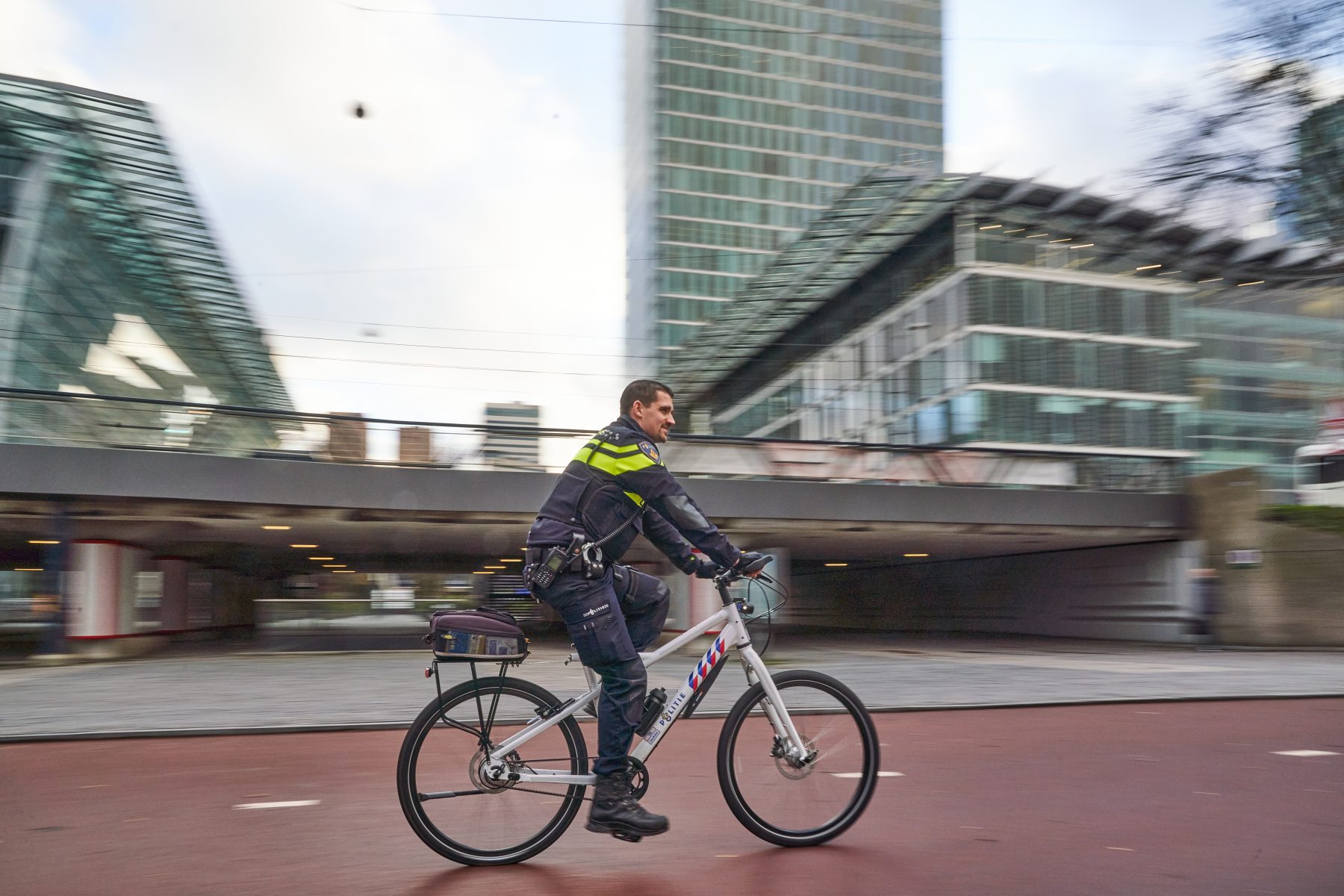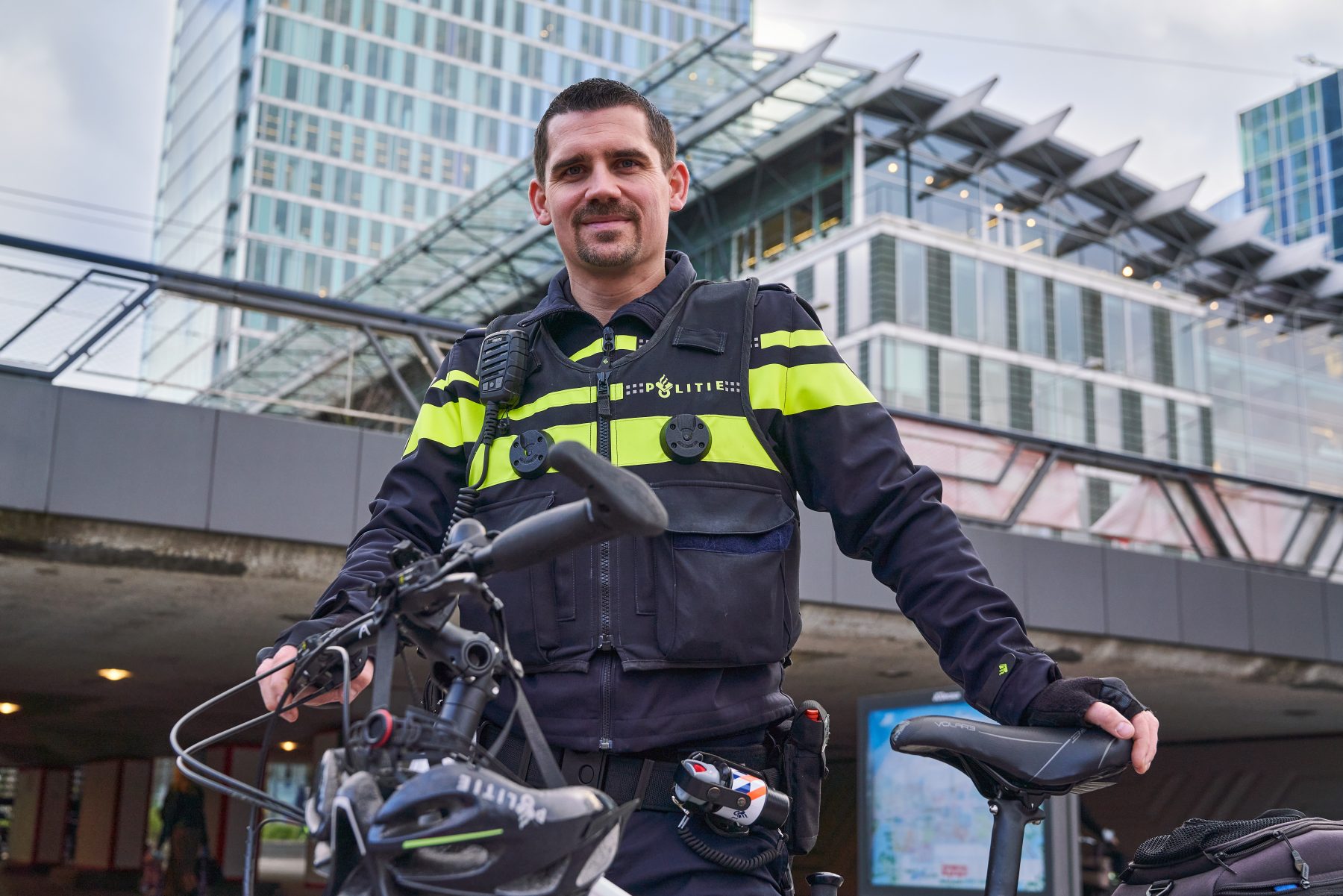‘When it comes to issues of policing, such as social control in Zuidas, there is a noticeable difference between before and during coronavirus’, says De Schipper. De Schipper’s beat covers the area between Amstelveenseweg, Beethovenstraat and the A10. Two colleagues are responsible for the rest of Zuidas. He started working as a local officer here 18 months ago and finds it a rewarding role. ‘Being assigned to a single area over a longer period enables you to develop relationships and make a difference for people.’ But everything is different now. ‘It’s a lot quieter and where you used to encounter residents spontaneously, I’m now sometimes actively chasing people up to check all is well. I particularly try to keep an eye on the elderly. Connecting with people is now more important than ever.’
Monitoring, connecting, and enforcing
De Schipper considers the monitoring role played by a local police officer to be important. ‘I need to know what’s going on in the local area and try to be a point of contact for everyone.’ Despite this, De Schipper is still a policeman and not a social worker. ‘Situations sometimes occur that I have to pass on to the municipal health service. We work together a lot. Of course, my main role is to prevent – small-scale – criminality and to intervene where necessary.’ In addition to monitoring and connecting with people, his role therefore also involves enforcement. ‘That includes things like arresting pickpockets, although there’s less of that at the moment.’ And what about the use of cocaine in Zuidas, has that also reduced? ‘Haha, I think that’s more of a media obsession – I’ve not actually noticed much of it myself. Besides, as a policeman, I can only take action if I catch someone red-handed and that’s never happened so far.’

Stay overnight
De Schipper is more likely to come across tramps looking for a place to sleep in Zuidas. ‘We’ve had reports suggesting that this is happening more than before. I don’t actually think that’s the case, but they’re just more noticeable now.’ However, these same tramps are now more likely to stay overnight in Zuidas. ‘Because the streets are quiet and there are a few places where you can sleep out of the rain, these are being used more often.’ What has decreased is the number of minor traffic accidents and incidences of road rage. But some traffic problems remain unchanged. ‘When they’re open, the peak hour congestion around the schools in Prinses Irenestraat and Fred. Roeskestraat remains a problem. It’s an ongoing issue because the infrastructure was not built for so much traffic. But because many parents with children at the international school don’t live locally, they bring their kids to school by car.’
Great sense of unity
Even now, De Schipper can be found in Zuidas every working day and continues to cover his beat. ‘I also do a lot of information sessions at schools, about my work, for example. And, with Fred. Roeskestraat recently becoming a no-smoking zone, I challenge people if they’re still smoking.’ Apart from that, he is now increasingly being telephoned by worried family members who have no contact with their elderly relatives. ‘In that case, of course, I’ll drop by. It does make a difference and there’s a great sense of unity among residents in the Prinses Irenebuurt. You can really tell they look out for and care for each other.’ So, what does De Schipper hope to achieve in his part of Zuidas in the year ahead? ‘The number of residents is increasing all the time and I aim to have personal contact with everyone. I’d also like to facilitate better connections between residents, companies, and entrepreneurs. Things are already quite good, but there’s always room for improvement.’

Give your opinion